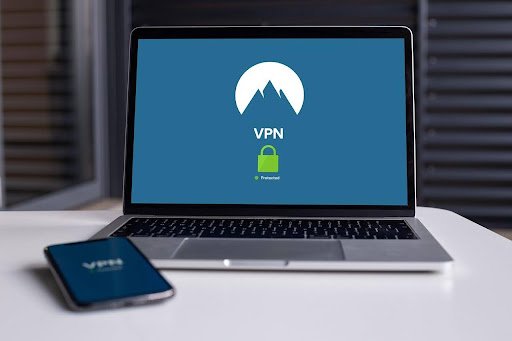Because online games unite players who are located in various parts of the world in real time, network conditions are sometimes the ultimate determinants of victory or defeat. VPN can improve stability and speed for gamers who experience lag or server limitations. The same applies to platforms such as casinos without restrictions, where demand is growing among users who want the freedom to explore different servers or bypass regional limitations. To any gamer, it is important to realise that a VPN is not simply a means of altering your route to connection, but it is a tool that cannot be ignored in terms of the convenience of playing games, besides securing your personal information.
1. Check Server Locations and Speeds
The immediate consideration when deciding on a VPN to use in gaming is its location and the speed of the server. The nearer a server, the nearer your ping and latency, meaning that your connection is faster and more reliable. For example, when you are playing on a North American server and you are located in South Korea, then a VPN with strategically placed intermediate servers can assist with increasing speed. Moreover, the higher the number of servers a VPN has, the greater the freedom of choice, i.e., you can choose the preferred region, which is advantageous not only for playing games but also for watching online content and engaging in online communities.
A few specialized game-specific servers are even made available by some higher-end services and automatically set up the required ports and protocols. In selecting a server, one should not only look at the number of countries covered, but also the distribution of the server in the various countries and how efficiently they can serve speed at the peak times.
2. Check Technologies for Low Ping and Stable Connections
One of the most important factors in online gaming is a stable connection. High download speeds are not sufficient. We need to reduce both ping and latency to feel immersed and competitive in real-time battles or when playing in co-op. Ensure that the VPN is modern with one of OpenVPN or WireGuard, or has specialized gaming servers. Good infrastructure is vital in non-stop gaming. Newer protocols, such as OpenVPN and WireGuard, use much less encryption, and the handshake is faster, assisting in lowering latency. Other VPNs have technologies that compensate actively the loss of packets in some areas, which makes the gaming experience smoother.
Interestingly, this concept of a ‘stable connection’ is not limited to gaming. Technology serves as a crucial means of linking people smoothly across physical distances. In other words, the network stability required for online gaming not only ensures better performance but also reflects the fundamental value of technology in connecting people.
3. Consider Security and Privacy Features
The essence of using a VPN is to secure your IP address and, in addition, to encrypt your traffic. Security must not be compromised even when one is playing a game with the help of a VPN. The possibility of your game account or payment information being leaked can be greatly mitigated by using a service that uses trusted encryption algorithms and follows the policy of never recording any logs. It is especially necessary to do it when using foreign servers or public Wi-Fi. As hacks to game accounts and DDoS attacks are becoming more and more frequent, the unprotected connection may result in the theft of in-game items or personal data. It is also prudent to scrutinize the other security settings provided by a VPN, like a kill switch or DNS leak.
4. Compare Prices and Subscription Options
If you plan to game over the long term, the cost of a VPN subscription is an important consideration. Long-term plans often offer a lower monthly rate than short-term options, and some services even provide packages specifically tailored for gaming. Rather than choosing based solely on price, it’s best to compare the features and benefits on offer to select the plan that best fits your usage. For example, some VPNs allow simultaneous use on multiple devices under a single account, which can be convenient for sharing with family or friends. Clear refund policies are also valuable, as they allow you to cancel easily if you’re not satisfied, reducing any risk.
5. Check Device and Platform Compatibility
Modern gamers play not only on PCs but also on consoles and mobile devices. According to one statistic, 39% of internet users in the UK play on game consoles, 32% on desktops or laptops, and 59.5% on smartphones. Given this, it’s essential to ensure that any VPN you choose offers broad support across multiple operating systems and devices.
Support for Windows, macOS, iOS, and Android is standard, but a VPN that’s also easy to set up on consoles like PlayStation or Xbox adds extra convenience. The more compatible a VPN is, the more consistently you can connect from any device. Additionally, configuring a VPN at the router level protects all devices in your home automatically, which is especially useful for gamers who switch between consoles and mobile devices.
6. Evaluate Customer Support and Update Policies
A VPN is not just software you install and forget; it should be viewed as an active, evolving service. It’s important to have access to responsive customer support and frequent, high-quality updates that guarantee long-term reliability. Features such as live chat support, comprehensive FAQs, troubleshooting guides, and multilingual assistance can help minimize inconvenience during use and make the overall experience smoother.
A VPN that provides regular security patches, upgrades its infrastructure, and steadily improves server quality over time is far more dependable. For example, some premium services add dedicated servers, expand regional coverage, or release urgent hotfixes during major game launches, ensuring stable, lag-free connections even when user demand spikes dramatically. Ultimately, a VPN backed by proactive support and ongoing innovation delivers greater peace of mind and a superior level of protection.







